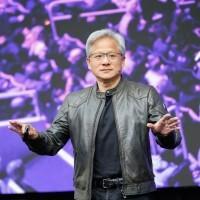The European Union is embarking on an ambitious journey to position itself as a global hub for artificial intelligence. With the approval of a €1.5 billion fund, the European Commission plans to establish seven cutting-edge AI factories across the continent. These facilities are poised to not only enhance AI research but also democratize access to AI technologies for small businesses, thus setting the stage for a new era in European innovation.
AI factories are state-of-the-art facilities designed to harness the power of artificial intelligence for industrial, commercial, and academic purposes. As explained by NVIDIA founder Jensen Huang, the essence of an AI factory lies in its capacity to generate valuable intelligence and financial returns. These factories encompass four critical components: a robust data pipeline, algorithm development, high-performance computing infrastructure, and an experimentation platform.
The initiative aims to spur AI research and development, with Commission President Ursula von der Leyen envisioning Europe as a leading “AI continent” by the end of the decade. The factories will provide a fertile ground for innovation, enabling the development, testing, and evaluation of new AI algorithms and applications. This bold move is seen as a strategic response to the rapid advancements in AI by global competitors like the United States and China.
The selected sites for these AI factories are strategically located in Barcelona, Spain; Bissen, Luxembourg; Bologna, Italy; Stuttgart, Germany; Mimer, Sweden; Kajaani, Finland; and Athens, Greece. Each location is chosen to leverage existing technological infrastructure and regional expertise. For instance, Greece will house the DAEDALUS supercomputer, while Spain’s Barcelona Supercomputing Center will undergo significant upgrades.
Each AI factory will concentrate on distinct sectors of the EU economy. Italy’s factory will focus on agrifood and cybersecurity, while Luxembourg will delve into space technology and finance. This specialized approach is designed to address diverse economic needs and foster sector-specific advancements, ensuring that AI integration benefits a broad spectrum of industries.
In addition to technological advancement, these factories will play a pivotal role in human capital development. Facilities in Finland and Greece will offer upskilling programs, providing training in AI competencies to individuals seeking new career opportunities in this burgeoning field.






